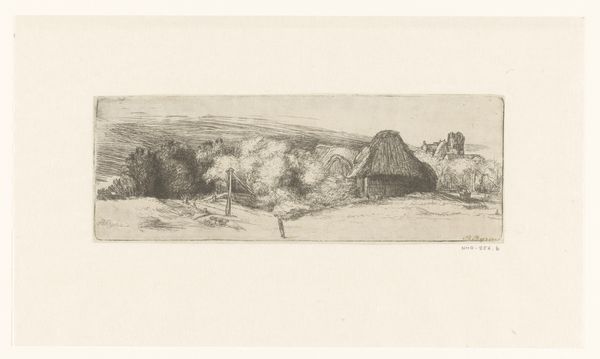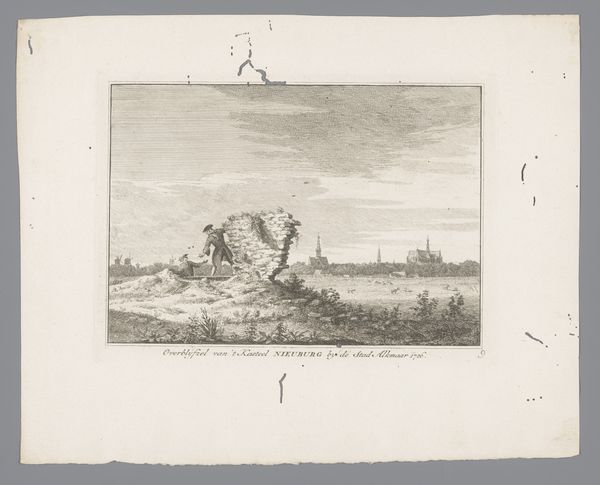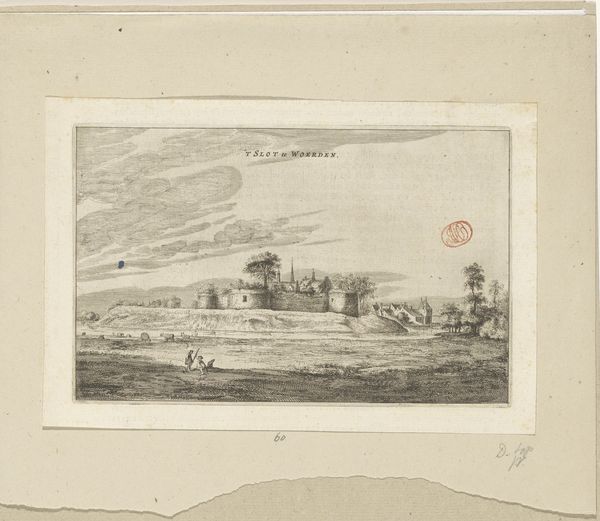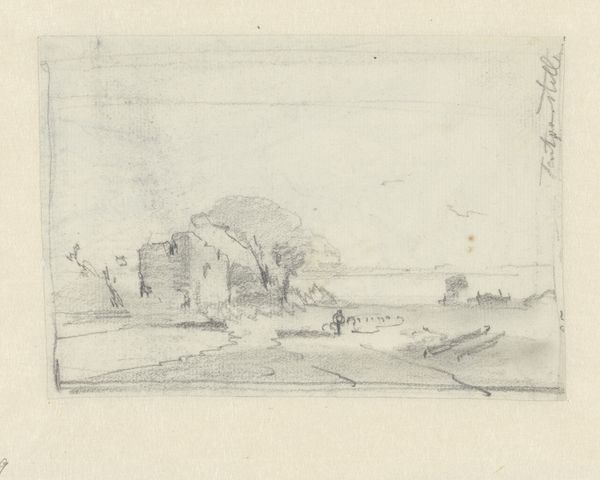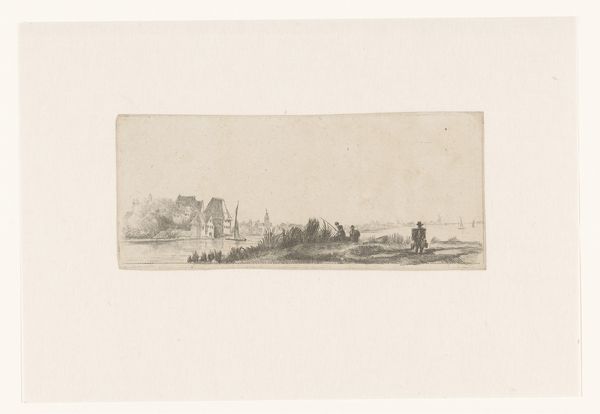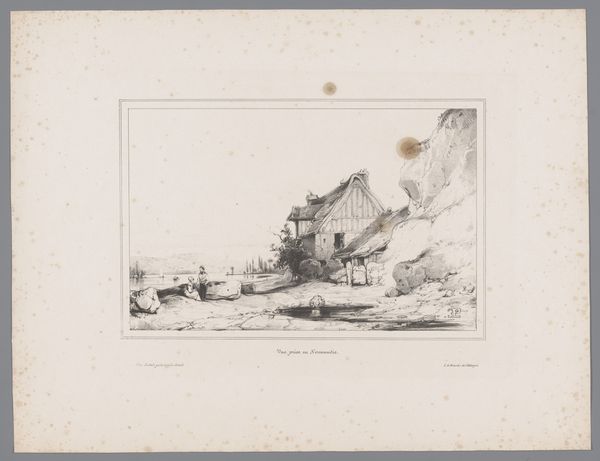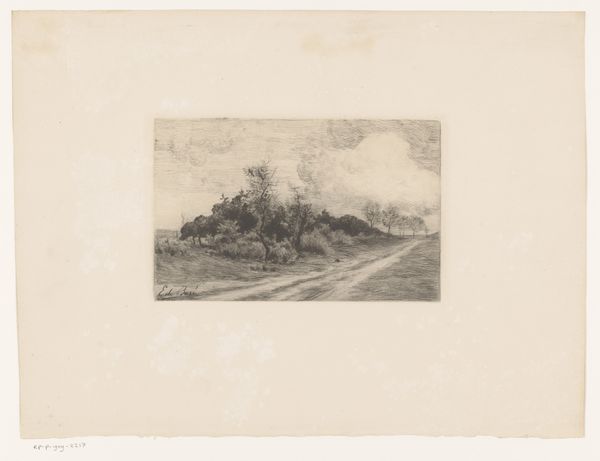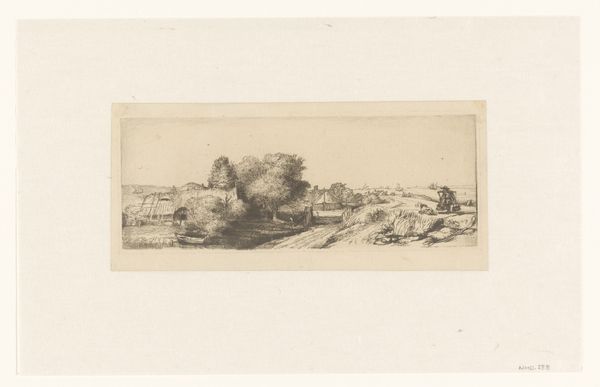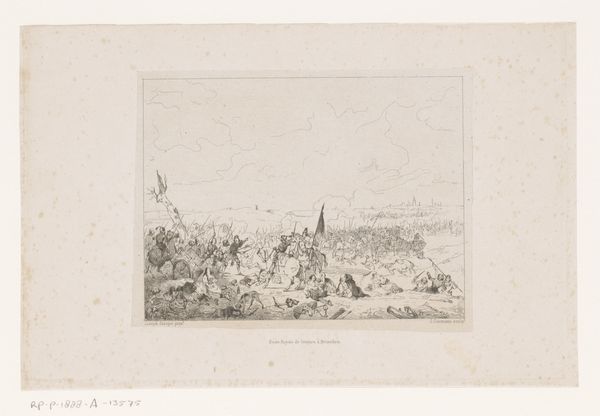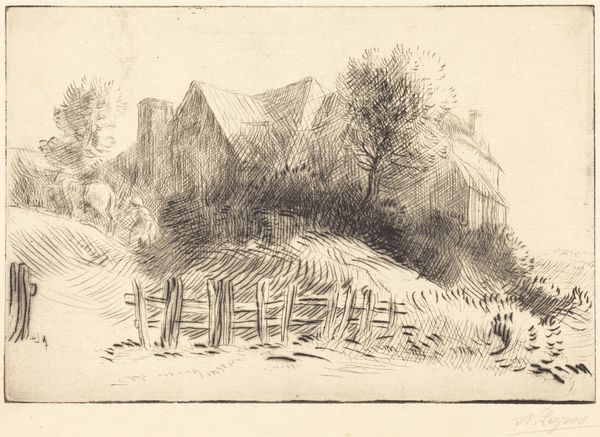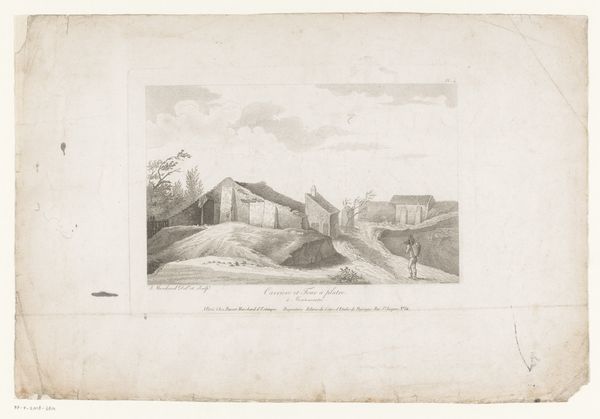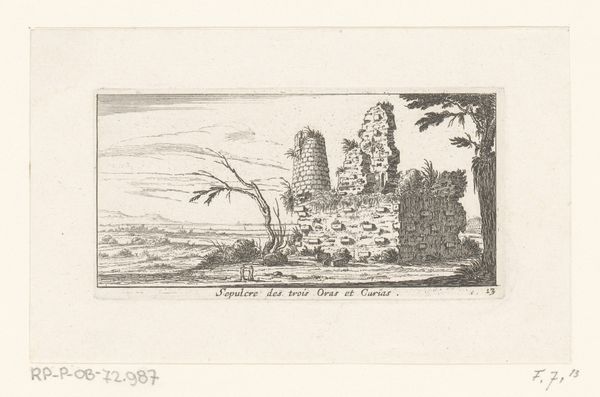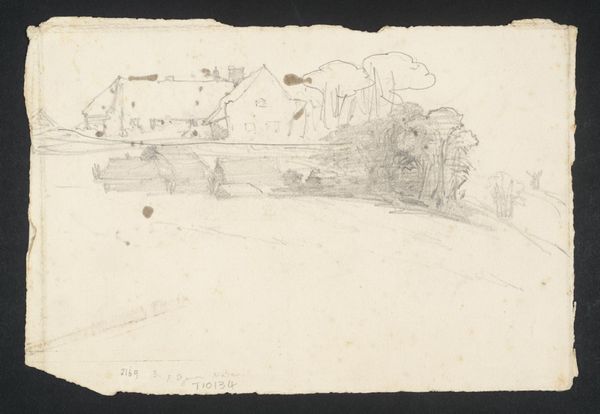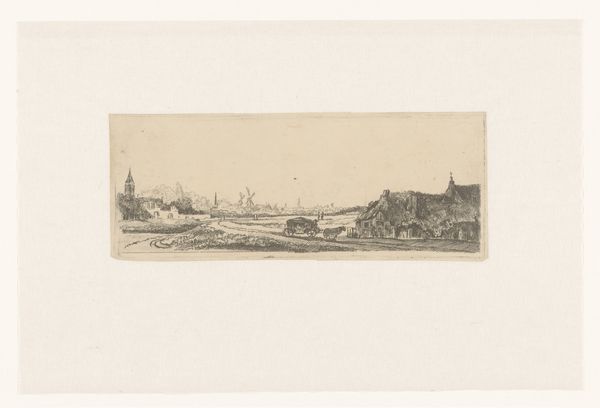
print, etching
#
baroque
# print
#
etching
#
landscape
#
cityscape
#
realism
Dimensions: height 63 mm, width 175 mm
Copyright: Rijks Museum: Open Domain
Curator: We're looking at "Gezicht op 't Molentje," or "View of the Little Mill," an etching made by Benjamin Wilson in 1751. It’s currently held at the Rijksmuseum. Editor: It's incredible to think this landscape was made entirely with etching! It has such a raw, almost sketch-like quality. The detail is amazing, but so much feels left undone. How would you approach interpreting a work like this? Curator: Let's consider the social context of printmaking at this time. Etchings allowed for the wider circulation of images. Wilson explicitly mentions that the print was “designed and etched” and “sold as a very fine Rembrandt." What does that tell us? Editor: So, it was directly appealing to the collector market with both the artistry and commercial aspect in mind? Curator: Precisely. And consider the materiality: the copper plate, the acid, the printing press, the labor involved in each print pulled. It's not just about artistic vision, but a whole chain of production. Does that change how you see it? Editor: Absolutely. Thinking about it as a product of skilled labour rather than pure inspiration makes me wonder who was buying these and why. Were they appreciating Wilson’s talent or the affordable connection to a “very fine Rembrandt”? Curator: Exactly! The etching becomes a commodity, accessible in a way that paintings were not. It challenges our ideas about what constitutes 'high art' by participating in a marketplace. It’s interesting to ponder who had access to images of landscapes versus ownership of land in that same period. Editor: That's a really important distinction, shifting the focus to who gets to own and share these images, and for what purposes. Thank you; I hadn’t considered the broader societal implications like that.
Comments
No comments
Be the first to comment and join the conversation on the ultimate creative platform.
